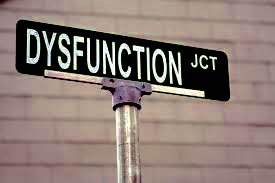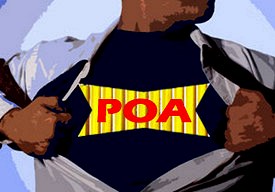The BC Centre For Elder Advocacy and Support (BC CEAS) website contains a Wealth of Free Legal Information on Elder Law Issues.
I have taken the liberty of copying their excellent article on basic Power of Attorney information as an example of the quality of the legal information provided .
Power of Attorney Wednesday, July 28th, 2010 By the legal staff of the BC CEAS Elder Law Clinic
What is a Power of Attorney?
A power of attorney is a legal document that gives another person the power to take care of your financial and legal matters for you. The person you give this power to is called the “attorney,” and you are called the “donor.” (Here, “attorney” does not mean lawyer.)
A power of attorney gives your attorney the authority to take care of only your financial and legal affairs. This could include paying bills, doing banking, or selling real estate on your behalf. It does not allow him or her to make decisions about your personal or health care.
What are Powers of Attorney Used For?
There are many reasons why a person might choose to make a power of attorney.
One reason is that they may need temporary help taking care of their financial matters if they will be away for a while. For example, if you are going on vacation and will need some banking done while you are gone, you can have a power of attorney drawn up giving a family member or other person the power to take care of this while you are away. You could also have a power of attorney drawn up if an illness or injury makes it difficult for you to handle your own financial affairs.
People also commonly make a power of attorney as a form of advance planning, to ensure that a family member or other person of their choice is legally able to take care of their financial affairs if they become “mentally incapable” of managing their own finances in the future.
This kind of power of attorney is often called an “enduring” power of attorney. It continues in effect – or “endures” – even if you become mentally incapable. It is important to know that, if you should become mentally incapable of making a power of attorney, it is “too late” to do so if you don’t already have one in place. You have to plan ahead and do it in advance. If you do not have a legal power of attorney appointing someone to act for you in place when you become mentally incapable, then your loved ones will need to go to court to get “committeeship” (the legal authority to handle your affairs). Going to court is an expensive and time consuming process, and there is no guarantee that the court would decide to grant the legal powers asked for.
An enduring power of attorney is a simple tool that ensures that the person of your choice is able to easily step into your shoes and manage your finances when you become incapable of doing so, without having to go through the court process. To create an enduring power of attorney, you should ensure that the following sentence is included in your power of attorney document: “In accordance with the Power of Attorney Act, I declare that this power of attorney may be exercised during any subsequent mental infirmity on my part.”
Who Should I Name as My Attorney?
You can choose any capable person to act as your attorney, so long as he or she is 19 years of age or older and willing to act as your attorney. It is very important that you give careful consideration to who you choose to act as your attorney. He or she will have significant power over your financial affairs, and significant responsibilities.
Choose someone who you absolutely trust, and who is good at handling money. While most people choose their spouse, child or other loved one to be their attorney, careful thought should always be given to the appropriateness of the appointment.
In addition to the skills and trustworthiness of the person, you might consider whether the responsibility of acting as your attorney could cause undue stress or strain on the person or on your relationship. If you wish, you can choose more than one attorney. If you do this, you need to write in the document whether you want them to have to act together, or whether they can act independently.
You can also name one or more alternate attorneys who can take over if your first attorney becomes unable or unwilling to act. If you have no relatives or friends who are willing and able to serve as your attorney, you can choose a trust company, or the Public Guardian and Trustee (a government official), to act as your attorney.
In either case, you will be charged fees for their services. Your Attorney’s Powers The breadth of your attorney’s powers depend on what powers you give them. For example, if you create a limited power of attorney giving your son only the power to deposit your pension cheques, then your son will have the legal power to do only that – deposit your pension cheques.
However, if you create a general power of attorney that does not have any limits in it, then your attorney will generally have the power to do anything financial or legal that you can do for yourself. This could include, for example, cashing your cheques, withdrawing money from your bank account, dealing with your income taxes or buying or selling property on your behalf. (However, there are special requirements that apply if you want your attorney to be able to deal with real estate property – see Powers of Attorney for Real Estate below.)
Your Attorney’s Responsibilities
Your attorney is legally required to act honestly and in good faith, in your best interests. Your attorney must keep careful records of the financial activities done on your behalf and give the records to you upon your request, and must keep your affairs separate from his or her own.
When Powers of Attorney Start and End
A power of attorney comes into effect as soon as it is signed, however it does not have to be used right away if you do not need help yet.
Make sure your attorney knows when you want him or her to start acting on your behalf. If you prepare a limited power of attorney for a specific purpose or a specified period of time (for example, to handle your banking while you are out of town), your power of attorney will expire when the stated tasks have been completed and/or on the end date noted in the document. If you instead prepare a general attorney, subject to some exceptions your power of attorney will normally continue in effect indefinitely until you revoke it or until you or your attorney die (unless you have named more than one attorney or an alternate to act in the event an attorney dies).
Also, unless you have created an “enduring” power of attorney by including an enduring clause as discussed above, your power of attorney will end if you become mentally incapable.
Revoking a Power of Attorney
As long as you are still mentally capable of doing so, you can normally revoke (cancel) your power of attorney at any time.
To revoke a power of attorney, you should notify your attorney in writing that the power of attorney is revoked effective immediately. Also notify in writing all banks, businesses, organizations and individuals that your attorney deals with, advising them that the power of attorney has been revoked and asking them to destroy all copies of the document they have.
Making a new power of attorney does not automatically cancel an old one. It is possible to have more than one power of attorney in effect at the same time. If you want to make sure you have only one power of attorney in effect, when you make a new power of attorney ensure that you write at the beginning “I revoke any and all powers of attorney I have previously made.”
Banks’ Power of Attorney Forms
Banks often have their own power of attorney forms they want their customers to use. If you have your own power of attorney that covers banking matters, they have no right to require you to use their form. You could ask to speak with the bank manager or, if necessary, call a lawyer. Powers of Attorney for Real Estate If you want your attorney to have the power to sell your real estate property or deal with mortgages or easements for you, there are special requirements. You must sign the power of attorney in the presence of a lawyer or notary (and the lawyer or notary must also sign), and you must register the power of attorney at the land title office and comply with other legal requirements. If you want your power of attorney to include these powers, consult with a lawyer for advice.
Preparing a Power of Attorney Document
There are power of attorney forms in the Schedule to the British Columbia Power of Attorney Act, available online on the Internet. There are also sample BC power of attorney forms and kits available online and in legal publications you can find in the library and in bookstores. However, it is best to get some professional help, especially if you have a complicated or unusual situation.
As noted above, if your power of attorney is to deal with real estate, you must go to a lawyer or notary public.
Pre-planning for Health Care Decisions
A power of attorney covers financial and legal matters only. If you want to plan ahead and choose who will make health care and treatment decisions for you when you no longer can, you can make what is called a “Representation Agreement” naming whoever you want to make those decisions. Nidus Registry for Enduring Powers of Attorney and Representation Agreements The Representation Agreement Resource Centre has an online registry called the Nidus Registry where you can register your enduring power of attorney or representation agreement, if you wish.
The fees are $25.00 for set-up and the first registration, and $10.00 for each additional registration. You can register yourself by going to www.nidus.ca on the Internet, or ask family or friends to help.
You can also phone the Nidus Registry and Resource Centre for help with registering. Their phone number is (604) 408-7414(604) 408-7414. This BC Centre for Elder Advocacy and Support public legal education article was written in 2009. It contains general information only and is not a substitute for getting legal advice about your particular situation.
Section(s): Legal Research Articles, Resources Tags: Power of Attorney, Research – See more at: http://bcceas.ca/power-of-attorney/#sthash.qYASRVHg.dpuf





